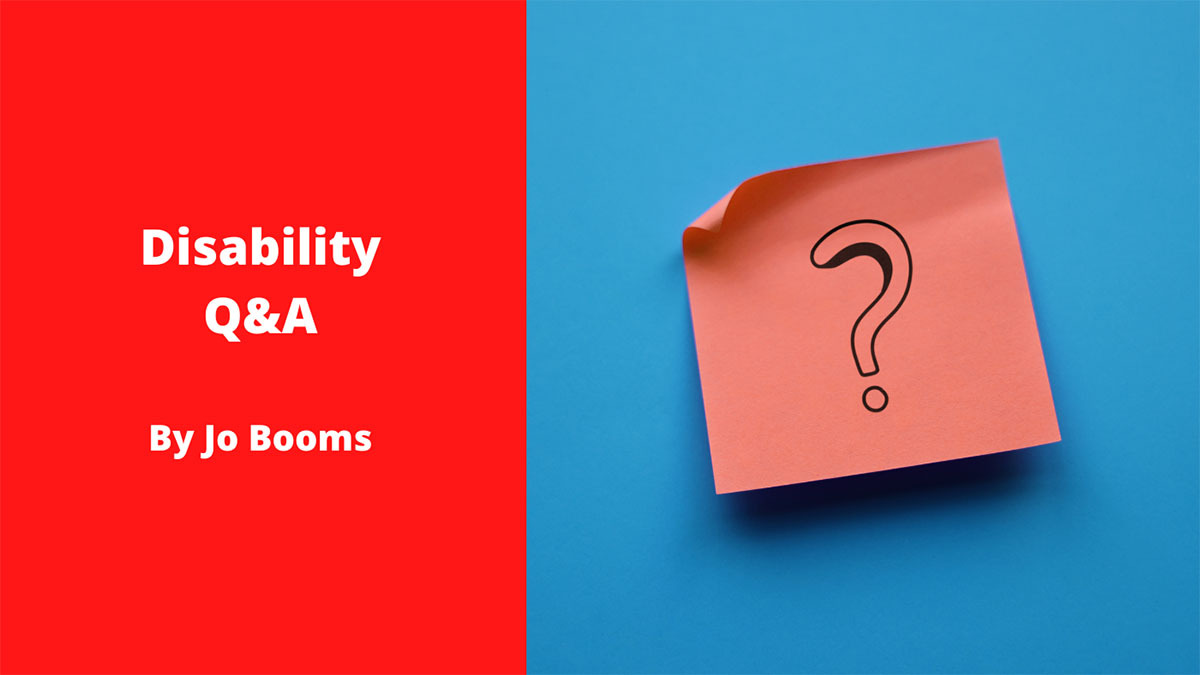Tales From a Backyard Front: Experiences & Insights from Colorado’s Intellectual and Developmental Disabilities System

Disability Q & A!
NOTE: Arc Thrift Stores is not responsible for the content of guest blogs that appear on the site.
Guest Blog by Jo Booms
Many myths accompany the disability community and the Intellectual and Developmental Disability (IDD) community. So, let’s take a look at some of the most prevalent!
Q: What is meant by the term “developmental disability”?
A: The term “developmental disability” just means that the person’s disability manifested in the time when their body and mind were developing, which is defined as before the age of twenty-two. To qualify as developmentally disabled, the person must also have a testable IQ below 70.
Q: All people served by the Intellectual and Developmental Disability system have an intellectual disability, right?
A: Ehh, mostly. Note that the above definition of developmental disability is dependent on testable IQ. IQ tests often rely on things learned in public school. If the person has a learning disability, or in the past if they were never allowed to go to school, their testable IQ may be lower than their real IQ. Also, IQ tests often involve the person manipulating colored blocks to make colored shapes. If the person’s muscular disability won’t allow the person to manipulate the blocks effectively, their testable IQ may be lower than their real IQ. This was the case with my friend, Jeanie, who was served by Colorado’s Intellectual and Developmental Disability System for most of her life. Jeanie had a severe physical disability which simply didn’t allow her to be able to take an IQ test effectively. While most people served by the IDD system have intellectual disabilities, a handful of those served may have normal cognition despite a low testable IQ.
Q: A physical disability means that a person also has an intellectual disability, right?
A: Nope. My friend, Jeanie, often ran into this problem. Due to a severe physical disability, she used a wheelchair. Jeanie often said that people assumed that because her knees didn’t work, her brain didn’t either. This led to some of her staff treating her like she had no mind. One staff member even tried to play peek-a-boo with her. Jeanie could understand at a college level, so this did nothing to uphold her dignity. The fact that someone has a physical disability has no bearing on their mental faculties. Some people with muscular disabilities have intellectual disabilities, but many don’t.
Q: What if someone is blind or deaf? Does that mean they have an intellectual disability as well?
A: No. Some people with blindness have an intellectual disability, but most don’t. I have a friend whose husband is blind. When they go out to eat, the waitress always asks my friend, “What does he want?” when the waitress should just ask the husband directly for his order. Blindness and deafness by themselves don’t indicate an intellectual disability.
Q: All adults with intellectual and developmental disabilities are just like big children, right?
A: No. Most adults with intellectual and developmental disabilities are interested in adult pursuits. Many have jobs or own their own small businesses. Many live on their own, while others live in group homes or host homes if they need more assistance. Some have job coaches who help them, others have learned their jobs well enough that they no longer need a job coach. Some people with IDD may like Disney films or collect Mickey Mouse memorabilia, but plenty of adults without disabilities take part in those activities, too.
Q: People with IDD don’t make good workers, right?
A: Nothing could be further from the truth. Most people with IDD make dedicated, loyal workers who value their jobs and are valued in return. One young man with IDD that I used to have on my caseload was being bullied by a new, nondisabled worker. The young man’s coworkers took the new hire aside and pointed out that the worker with IDD did a better job and was more pleasant to work with than the new worker. They told the new worker if he didn’t like working with someone with IDD, he was free to quit. People with IDD make valuable employees.
I hope you’ve enjoyed this Q & A session!


